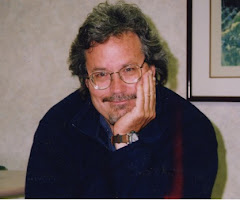Actual scripture reading was accomplished largely by our family deciding to sit down every evening and just read aloud through the Bible. Once that became habit, over a period of five or so years we actually did read through all of scripture five or six times. Seems simple enough, but having the grace as a family to do so is quite a delight, and I consider that little window of life to have been very fortunate for me. The effect of doing this can't be overstated. As young Lutherans, we kept finding passages from scripture that were in the liturgy, until we eventually came to see that all of the liturgy was borrowed from scripture. Discovering this first-hand is really reassuring. It taught me much about what was going on in the Divine Service. As the redoubtable Norman Nagel wrote in the introduction to LW, Missouri's just-discarded hymnal:
"Our Lord speaks and we listen. His Word bestows what it says. Faith that is born from what is heard acknowledges the gifts received with eager thankfulness and praise...Saying back to him what he has said to us, we repeat what is most true and sure. Most true and sure is his name, which he put upon us with the water of our Baptism. We are his. This we acknowledge at the beginning of the Divine Service. Where his name is, there is he. Before him we acknowledge that we are sinners, and we plead for forgiveness. His forgiveness is given us, and we, freed and forgiven, acclaim him as our great and gracious God as we apply to ourselves the words he has used to make himself known to us." (Bold face mine)
Once scripture became a bit more firmly embedded in the heart, my next yearning was to learn the history of the church. I stumbled upon a used copy of Walker's A HISTORY OF THE CHRISTIAN CHURCH, reprint circa 1950's somewhere (It keeps getting revised and updated). This was for me just a lot of fun to read, and I really absorbed it. It has been a very nice resource to go back to, but mainly what it accomplished was to put the major church players and antiplayers and their relationships firmly in my mind. One begins to see in the unfolding of the church in its first few centuries how important a role heresy played, as the church strove to define the canon; the Trinity; the person of Christ; the role of man in salvation, etc. Try keeping track of how many times Athanasius, and then Arius, and then Athanasius again were kicked out of the church, and then reinstated, and then kicked out again! Waltz through the exotic heresies of the church: Gnosticism, the Marcion situation, Montanism, Dynamic Monarchianism (and its cousin, Modalistic Monarchianism!), Arianism, the later Christological controversies, Pelagius. For a certain kind of diverse personality, this stuff rocks.
I would definitely add readings concerned with the overall history of the church to my top-ten reading list. But then, I like to grab the global view before descending into the morass of historical and theological detail.


No comments:
Post a Comment